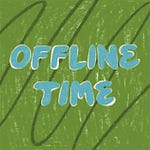You’d think I’d be triggered while reading Taylor Lorenz’s forthcoming book, Extremely Online: The Untold Story of Fame, Influence, and Power on the Internet, but actually, it was one of the most validating pieces of texts I’ve ever read.
Here are some of the topics we cover in our conversation:
Have you ever thought about why the word “creator” replaced the word “influencer” a few years ago? It’s because male executives associated the word “influencer” with female frivolity and wanted a more “serious-sounding” adjective (though now it has become a catch-all term for anyone who creates content online)
When it comes to moms oversharing about their kids (a.k.a. sharenting), should we really be putting so much blame on the mothers when it’s the tech behemoths that really need to take responsibility for protecting our children? Also, why aren’t we yelling at dads about this?
When I received career-shaking backlash in the fall of 2018, would a man have received the same amount of hate?
How profit-driven social media networks are what’s causing creator burnout.
We explore these areas, and SO much more.
This spring I posted here about why we don’t take the influencer experience more seriously, and this book helped explain so much of what’s missing from the general discussion around influence, power, money, and the internet.
Taylor Lorenz was one of the journalists that Elon Musk banned from Twitter when he took it over. She is a technology columnist for The Washington Post's business section covering online culture and the content creator industry. She was previously a technology reporter for The New York Times business section, The Atlantic, and The Daily Beast.
Taylor’s book reads like an oral history of social media—and follows specific influencers’ stories along the way. She notes that many influencers haven’t made it—they’ve been driven out of the industry by cancellations, smear campaigns, backlash, and burnout. So much of this book rang like a bell in my head, I kept thinking, “Yup, this happened to me, yup, yup!”
I’m so excited for you to listen! Paid subscribers get access to the full 30 minute podcast, while free readers will get a preview.
Paid subscribers are the lifeblood of this publication and allow me to keep the lights on and pay my rent. A paid subscription gets you access to exclusive posts, paid-only Chats, and first dibs on event tickets and special announcements. But mostly, they get to support my work and keep this newsletter going (sans #sponcon). I walked away from spon-con a few years ago and it has opened up so many creative portals for me, and I want to believe in a world where people can pay me directly for my work. ALSO…Spon-con content has to be reviewed by a corporation and approved for maximum profit. This newsletter isn’t, it’s just from my heart.
Paying for your favorite pieces of content directly (like through Substack) is a fantastic way to dismantle the creator crisis and to prevent us all from burning out! Thank you!
Lee Tilghman: I loved the section about women finding success and making money online, and how if a woman is making money in this way, in the public arena (a.k.a. not at a private 9-5 job), the public feels like they get to say something about it. You touch upon the initial backlash about mommy bloggers monetizing their content in the early 2000s and how people were livid. It was “supposed” to be about being a mother first, you know, how dare they commercialize it.
Taylor Lorenz: I have a lot of thoughts on that. It’s the most disingenuous thing. It’s so telling that nobody has anything to say about the massive amounts of data that are harvested on our children through schools, sports teams, camps, and large tech companies—but what are people angry about? Mothers. They're mad at mothers for sharing pictures of their own kids, which from my research, is not a large problem.
LT: I have to say, like, I have very complex feelings about this, because while I do understand that we are always putting women, especially mothers, under fire about how they make money, there is such an interesting conversation happening right now about like children being on social media.
TL: The majority of content about kids on the internet is actually teenagers putting
themselves online. It's usually the parents that don't want their children on social media. There’s a very small amount of moms who overshare, but it's dwarfed by how corporations and tech companies exploit and pressure children to put themselves online from a very young age through tech propaganda. They tell us all to commodify ourselves from a very young age. Mommy bloggers were the one who pioneered our culture’s progressive discussions around breastfeeding, postpartum depression and things of that sort. Motherhood can be such a lonely process, and sharing helped them, and countless others. And yet, we are villanizing mothers. Why is there no accountability on behalf of the tech platforms themselves? Also, so much of it is towards the mothers and not the fathers. I think there are bigger discussions we need to be having beyond mothers putting some embarrasing pictures of their kids online.
LT: Yeah, yeah. I’m so fascinated by how our society views influencers. Of course, there are the influencers who are promoting unhealthy beauty standards, face filters, lip-fillers, hyper-consumerism, eating disorders, misinformation, and other negative things for our society, but in general, speaking in broad strokes, whenever women make money in the public eye, we’re all going to have strong feelings about it. Unless you’re making money at a 9-5 like a good girl, people are going to have an issue with it.
In my own experience, I definitely found this to be true. When I was an influencer, I launched a workshop tour, and I was pseudo-canceled for being expensive. I just don't think that that would have happened to a man. I'm curious to hear from research, why that is, and is this just straight up misogyny?
TL: It is straight up misogyny. You mentioned the 9 to 5. Well, women were also once chastised for having 9-5s. You can be ambitious, but you just can't be too powerful. If you become too powerful, then you're a toxic girl boss. And if you stay at home, you have to be this perfect homemaker. God forbid you try and make money on the internet or market yourself. There is no right way to be a woman online. This is an industry that was built and pioneered by women—a half a trillion dollar industry. This is why, when Kim Kardashian speaks at business conferences, there's this underlying disrespect and people will laugh and say, “Haha, can you believe we've got Kim Kardashian? But you gotta respect her, she's making money”. It's the way that people talk about women; you can't ask for fame, you can't ask for attention, you can never seek money. Otherwise, you're a problem.
LT: Let’s talk about Substack. I'm watching the same thing happen on Substack that happened on Instagram, TikTok, YouTube. My Notes feed is all these people talking about growth, readership, subscribers, money. These writers are turning into creators and doing AMA hours, just like how I used to do Q+A’s on Instagram. It’s feeling like a social media network. What I'm trying to ask is, whenever a new social media company debuts, everyone will be excited, and say “It's different, it's different!” And then it feels like it's not. What's the future of a platform like Substack? Are we just repeating history?
TL: Yes. All platforms are incentivized to put public metrics and move more into these influencer-style platforms because that is what drives growth. They are motivated by profits. The goal of putting public subscriber counts is to push people, to make you say, “Oh shoot. They've got 10,000 paid subscribers. I should try to get that!” It's gamifying everything. Every social platform will eventually move towards that model—it’s extremely monetizable when people are competing with eachother. You need people constantly generating content. You need that funnel of 24/7 content generation in order to keep growing. The checkmarks come out, follower numbers come out, and then all of a sudden these creators or influencers come up. It’s exhausting.
LT: You've done a lot of research about social media and the internet over the last 24 years. What are some of the lessons from the past that we can take into the next 24 years? What are the mistakes we've made, and how we can move forward from here?
TL: Number one is that Silicon Valley leaders are not geniuses. They often don't even know how their products will be used and usually succeed because it’s the creative content creators that emerge and generate the engagement on these platforms. And I we've been spoonfed these narratives that it’s men who run these social media companies, but really, it’s the creators, and many of them, female. Number two, let's try to build less profit-driven social platforms. Let's try to recognize the amazing parts, but also the downsides of like social media. I believe that the goal of the internet is to be a people connector, but I wish that we could do it in a sort of healthier online environment. I don't think the answer is logging off and less connection. I think we need more connection. We're all very lonely.
LT: 100%. On the topic of hate and targeted attacks, I know you’ve been the target, and that your haters called Simon & Schuster and tried to get your book deal revoked. I’ve seen the dark side of social media, and it seems like you have, too. Once you see it, you can't unsee it. But how do you kind of keep going, how do you keep the hope?
TL: Yeah, and it’s always mostly females who are organizing these online smear campaigns. I think it's really important to have a core group of friends and people that are truly your friends and can gut check you. People online have created characters/personas of you, and you need real people to tell you the truth and remind you of who you are. You probably dealt with the same thing. It's like people made you into a character online and they hate the character they've made, even though it’s not based in reality.
LT: I think back on when I was full-time influening, it’s so easy to think it was all good or all bad. There were so many amazing experiences. I got to take my mom to Japan, all expenses paid. I got to buy myself a car. I was able to fly home and see my family so much. Like, I was making a salary that allowed me to gift my parents something that they really wanted for Christmas. But you know, we tend to focus on the negative things because those things also live longer within us. There was a trauma of being on social media to that level for me. It affected me longer than like, say, a fun little trip to Japan. The trauma stayed with me longer.
TL: 100%. I think we need to keep the criticism on big tech and on people that are truly profiting. Because, yes, maybe some influencers are profiting in really amazing ways, but the problem and exploitation comes from these big tech companies. We don't need to villainize women on the internet making money. Let's get to the root of the problem.
The full interview with Taylor Lorenz is in the podcast player above.
This interview has been edited for length and clarity.













Share this post